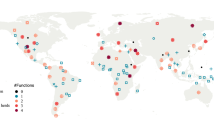Abstract
Martha Nussbaum argues that animals (including ourselves) are entitled to a flourishing life according to the norm for their species. Nussbaum furthermore suggests that in the case of dogs, breed norms as well as species norms are relevant. Her theses capture both common intuitions among laypeople according to which there is something wrong with the breeding of “unnatural” animals, or animals that are too different from their wild ancestors, and the dog enthusiast’s belief that dogs departing from the norms for their breed are tragic. I argue that the high diversity of the dog species and the ultimate arbitrariness of breed norms support the thesis that a conception of welfare must be tied to what the individual requires in order to flourish. In the second part of the paper, I discuss the implications that an individualized (but sufficiently sophisticated) welfare conception has for the breeding of dogs for conformation shows, for the pet market and for the performance of various tasks for which we need working dogs.
Similar content being viewed by others
Notes
Since I here refer to authors discussing the bio-engineering of animals, it is worth noting that I do not, in this paper, attempt to lay out a full and comprehensive theory of animal ethics. I do not believe that the ability to survive in one’s natural environment is intrinsically valuable in any way at all, for reasons that will be clear throughout this subsection. However, for all that I say, we might have duties to animals that are not directly related to their welfare; duties that are rather related to respect and integrity. We might have general duties to nature as a whole besides our duties to individual animals, and we might have indirect duties that make it wrong to do certain things. It might therefore still be morally wrong, for instance, to create non-sentient chickens for meat production, even though they do not have a low level of welfare since the concept of welfare does not apply to them. It might, for instance, be wrong because doing so makes us more prone to objectifying animals in general, which in turn makes us more prone to treat sentient animals in a way that negatively impact their welfare.
That is, on a pre-theoretical and intuitive understanding of what it means to be healthy; they are not in pain, move around without difficulty, rarely need to be treated by veterinarians and so on. A philosopher who believes that welfare is partly constituted by an ability to survive in the wild might define health in similar terms, and argue that these dogs are unhealthy.
The case of “teacup Chihuahuas” shows that harmful ideas of what is beautiful or cute might evolve independent of conformation shows. Extremely small Chihuahuas are likely to have worse health than those that are of normal Chihuahua size, and conformation show judges likewise prefer their Chihuahuas to be slightly bigger. Still, some people who are not interested in showing their dogs believe that the smaller the better, and this creates a market for extremely small Chihuahua dogs.
References
Bovenkirk, B., Brom, F. W. A., & Van Den Bergh, B. J. (2002). Brave new birds: The use of “animal integrity” in animal ethics. Hastings Center Report, 32, 16–22.
Donaldson, S., & Kymlicka, W. (2011). Zoopolis. A political theory of animal rights. New York: Oxford University Press.
Haynes, R. P. (2008). Animal welfare. Competing conceptions and their ethical implications. New York: Springer.
Jeppsson, S. (2014). Purebred dogs and canine wellbeing. Journal of Agricultural and Environmental Ethics, 27, 417–430.
Midgley, M. (2000). Biotechnology and monstrosity: Why we should pay attention to the ‘yuk’ factor. Hastings Center Report, 30, 7–15.
Nordenfelt, L. (2006). Animal and human health and welfare: A comparative philosophical analysis. Oxford: CABI.
Nussbaum, M. C. (2006). Frontiers of justice: Disability, nationality, species membership. Cambridge, MA: Harvard University Press, Belknap Press.
Author information
Authors and Affiliations
Corresponding author
Rights and permissions
About this article
Cite this article
Jeppsson, S. Flourishing Dogs: The Case for an Individualized Conception of Welfare and Its Implications. J Agric Environ Ethics 29, 425–438 (2016). https://doi.org/10.1007/s10806-016-9612-0
Accepted:
Published:
Issue Date:
DOI: https://doi.org/10.1007/s10806-016-9612-0




